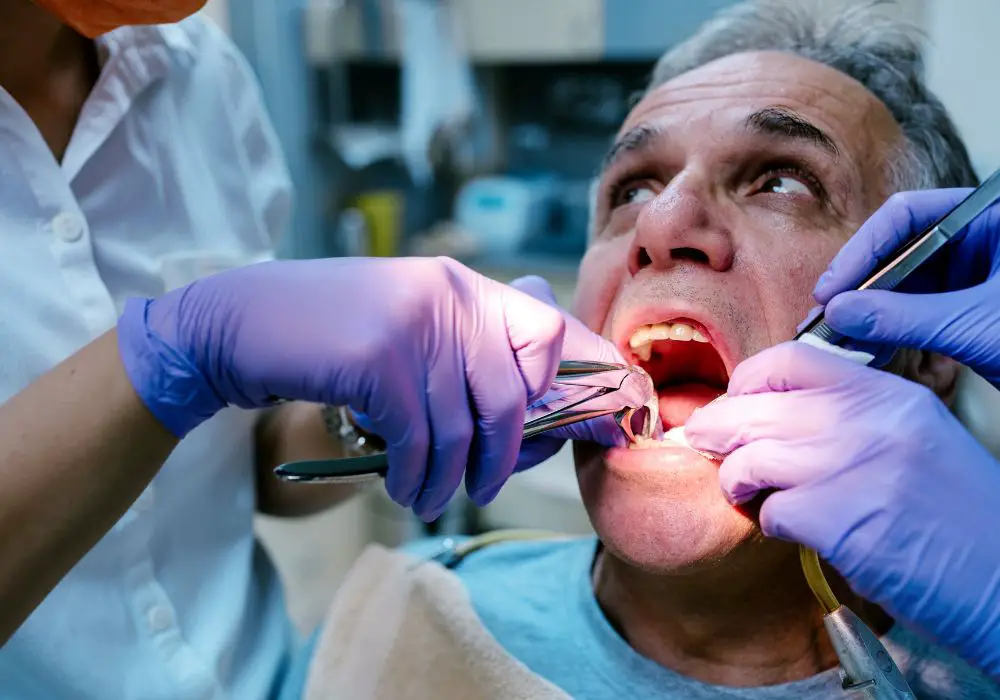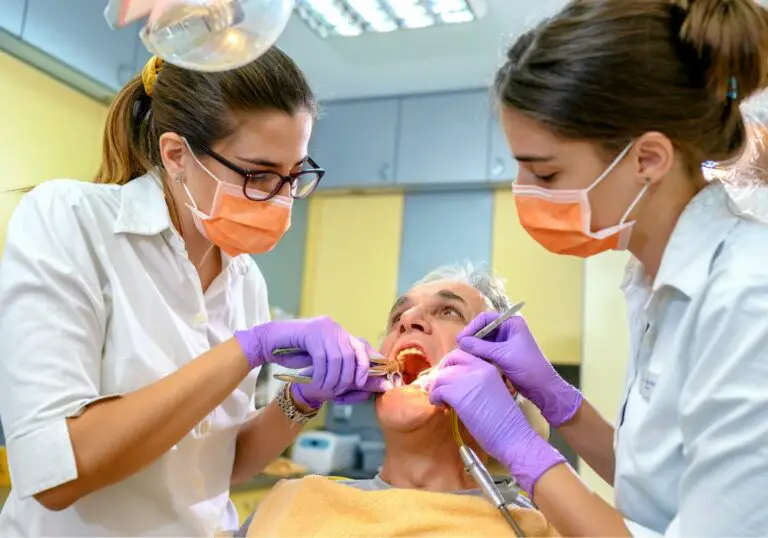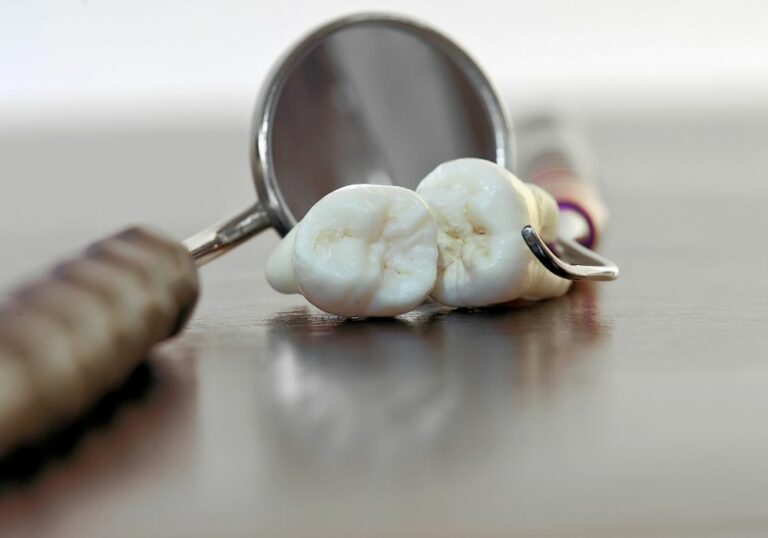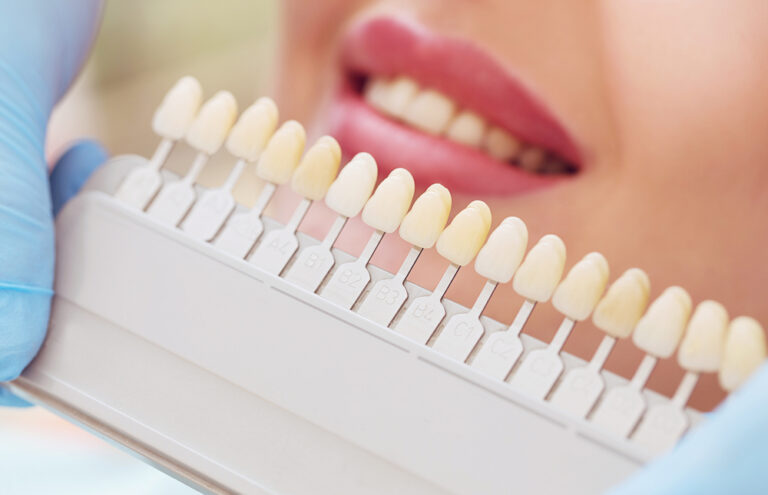Having a tooth extracted is an unpleasant experience for most patients. Aside from potential pain and discomfort, you may notice an unfavorable taste in your mouth during and after the procedure. A metallic, salty, bitter, or just plain “bad” taste is common and can linger for days or even weeks.
This altered sense of taste is normal, but understanding what causes it and how long it may last can help patients know what to expect after a tooth extraction.
What Causes the Bad Taste?

There are several reasons that contribute to the unpleasant taste frequently reported after tooth extractions.
Blood and Fluids
When a tooth is pulled, bleeding occurs as blood vessels are severed. This blood collects in the empty socket. As that blood mixes with your saliva, it often imparts a metallic, salty, or bitter taste.
Your body also produces straw-colored fluid called serum that can seep from the socket for several days after extraction. This serum has a high salt content, which can leave a salty or bitter taste when combined with saliva.
Irritated Tissue and Bone
The tissues around the extracted tooth become inflamed and irritated during the procedure. As these tissues heal post-extraction, they release inflammatory mediators and fluids that can have an unpleasant taste.
Additionally, some bone tissue is removed during extraction. Exposing the bony tooth socket to your mouth can create a sour, odd taste.
Anesthesia
Often numbing anesthetic agents like lidocaine are used when extracting a tooth. As this anesthetic wears off over the next several hours, it can impart a bitter, chemical taste.
If intravenous sedation was used, those medications may also temporarily alter taste perception.
Food Debris
After an extraction, food particles can become trapped in the empty socket. As this food debris decays over the next day or so, it produces substances that contribute to a foul, unpleasant taste.
Bacteria
With one less tooth, bacterial levels can increase in your mouth. This bacterial overload can also create bad tastes. Without proper oral hygiene, bacteria multiply rapidly.
Tobacco Use
Using tobacco products delays healing after an extraction. Tobacco can also cause bad breath and leave an unpleasant taste when used shortly after oral surgery.
How Long Does the Bad Taste Last?
The duration of altered taste varies between patients. But here is a general timeline:
- Immediately after procedure – Strong tastes from blood, anesthetic, and antiseptic are most pronounced for the first few hours.
- 1-3 days after – Bitter and salty tastes peak as inflammation causes fluids to seep from the socket. Healing has not yet begun.
- 3-7 days after – The bad taste improves slightly but can persist due to trapped food and stagnant blood. Initial healing starts to occur.
- 1-2 weeks after – Most patients report a return to more normal tastes as the socket closes. Healing continues.
- 2-4 weeks after – Taste is fully back to normal for most individuals as healing completes.
However, a small subset of patients report taste disturbances lasting for several weeks or months after dental extractions. This is more common when wisdom teeth or extensive extractions involving bone removal are performed. Infections or other complications can also prolong taste alterations.
Tips to Manage Bad Tastes After Extraction

While the unpleasant taste will fade as your mouth heals, there are some things you can do to help manage it:
- Gently rinse your mouth with warm salt water 3-4 times a day. This helps flush out debris and bacteria.
- When brushing teeth, avoid the surgery site but keep other areas clean to reduce bacterial buildup.
- Avoid smoking or using tobacco, as this impedes healing.
- Stick to a bland, soft food diet. Avoid spicy, salty, sour, or acidic foods that can irritate the socket.
- Suck on ice chips to numb taste buds short term.
- Chew xylitol gum to increase saliva flow and create a fresher taste.
- Suck on mint, lemon, or ginger hard candies to mask bad tastes.
- Drink plenty of water to help dilute unpleasant tastes.
- Diffuse pleasant aromas like peppermint, lemon, or tea tree oil to change your perception of tastes.
When to Contact Your Dentist
While mild taste disturbances are normal during healing, call your dentist if:
- The unpleasant taste lasts longer than 4 weeks.
- The taste suddenly intensifies or worsens.
- Taste changes are accompanied by high fever, chills, nausea, or severe pain.
- You notice a persistent bad odor from your mouth.
These can indicate an infection or other complication that requires prompt treatment. Rarely, extensive dental surgery can damage taste nerves and cause prolonged taste alterations. Let your dentist know if tastes do not resolve.
The Taste Will Improve with Healing
That unpleasant taste is annoying but temporary. With proper care after extraction, your mouth will return to normal soon. Focus on controlling pain, taking any prescribed antibiotics, eating soft foods, and practicing gentle oral hygiene. Avoid irritants that can worsen or prolong taste issues. And don’t hesitate to contact your dentist with any concerns.
With a little patience, that bad extraction taste will resolve. Before long your sense of taste will be back to normal!
Frequently Asked Questions
Why does tooth extraction cause a bad taste?
Tooth extractions can cause bad tastes due to exposed bone and tissue, blood, inflammatory fluids, numbing medication, and food debris accumulating in the empty socket. These all mix with your saliva and alter taste.
Is a metallic taste after tooth extraction normal?
Yes, a temporary metallic or salty taste is very normal following a tooth extraction. This is caused by blood mixing with your saliva. It should improve within a few days.
How long does the bad taste last after an extraction?
Most patients report an unpleasant taste for 1-2 weeks after the procedure. In some cases it can last a few weeks to months. If it persists longer, contact your dentist.
What can I eat after a tooth extraction?
Stick to soft, bland foods like yogurt, pudding, mashed potatoes, soup, scrambled eggs. Avoid spicy, crunchy, acidic or salty foods that could irritate the surgery site.
How do I get rid of the bad taste after a tooth extraction?
Rinsing with salt water, staying hydrated, chewing gum, sucking mints/candy and diffusing pleasant aromas can temporarily mask the taste. But it will resolve on its own as the socket heals over the next few weeks.
When should I worry about a bad taste after an extraction?
Contact your dentist if the taste lasts longer than 4 weeks, suddenly worsens, or is accompanied by severe pain, fever, chills or bad mouth odor. These may indicate an infection requiring treatment.
Will a tooth extraction change my sense of taste permanently?
In most cases, taste returns to normal within a few weeks after extraction as healing occurs. Extensive surgical extractions rarely can cause permanent taste nerve damage, but this is uncommon.
What helps with bad breath after a tooth extraction?
Gently brushing and rinsing your other teeth, chewing gum, staying hydrated, and using a minty mouthwash can temporarily freshen breath. The bad odor should subside within 2 weeks as healing occurs.
When can I use a straw after a tooth extraction?
Avoid using straws for 5-7 days after an extraction, as the suction can dislodge the blood clot. After the first week, you can resume use of a straw with caution.







